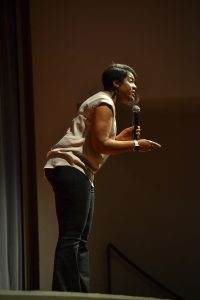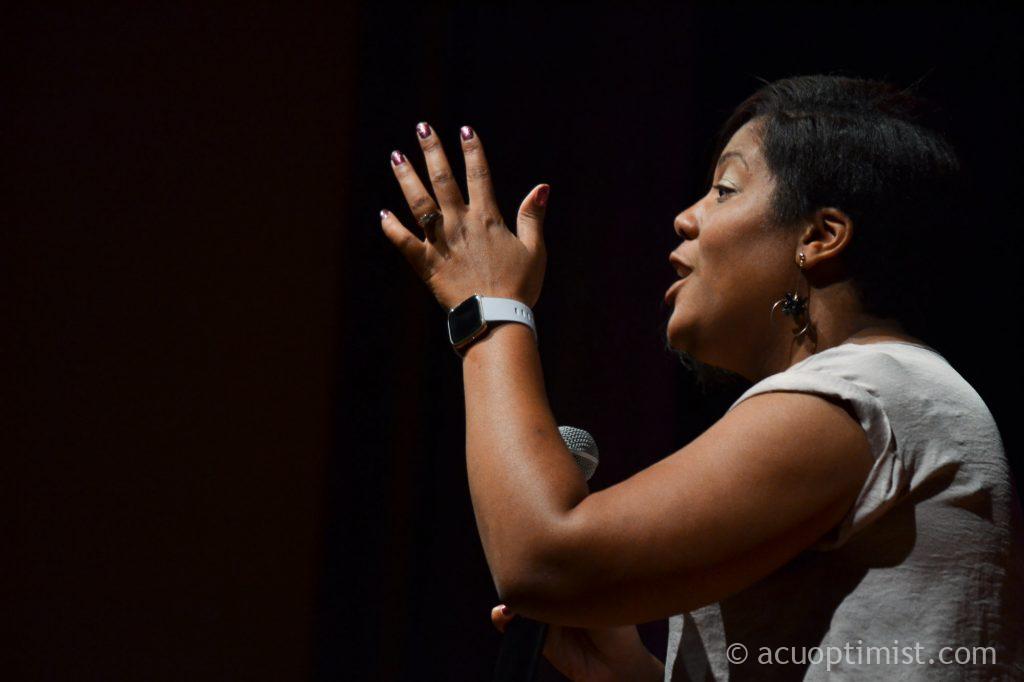
Austin Channing Brown delivers a message to the audience. (Photo by Megan Holley)
Author and activist Austin Channing Brown spoke to students Monday after faculty and staff read her recently published memoir during different reading groups.
Several faculty members read Brown’s memoir “I’m Still Here: Black Dignity in a World Made for Whiteness” as part of a small reading group last spring. Dr. Robert Rhodes, provost, then recommended the memoir to all faculty and staff.
Brown is a graduate of North Park University and Maygrove College. She has worked at Calvin College and topped the Amazon Bestsellers “Christian Social Issues” list with her memoir released in 2018.
Dr. Laura Carroll, executive director of the Adams Center for Teaching and Learning, said Brown writes for people who already care about racial justice and brings to light how privilege can sometimes get in the way.
“We got really excited about the possibility of her coming and speaking, because we felt like she knows our context and probably intuitively knows a lot of the issues that we struggle with as we move toward racial justice as a campus and as we work on anti-racist policies,” Carroll said.
Brown spoke to students in Moody Chapel about her experiences of racial injustice through a Christian lens. She also gave a presentation at a faculty lunch Monday and had a meeting with senior leadership Tuesday. Carroll hopes that Brown brought a different kind of representation to campus in efforts for students to hear and understand a new perspective.
“I think it’s two-fold. One, I want all of our students to hear her, because I think she is a prophetic voice, and I think she is speaking important truths. I also think for our students of diverse ethnicity, seeing a woman of color on the chapel stage is really profound.” Carroll said.
Rachel Puckett, freshman advertising and public relations major from Fort Worth, sat in on Chapel Monday and said she felt as though it was something students across campus needed to hear.
“I found it interesting that people sitting around me reacted uncomfortably, and I think that uncomfortable feeling is important because it’s what’s going on in our world,” Puckett said. “I think a lot of us are blinded by our privilege and once we realize that, we can better serve our neighbors and our communities.”
Carroll also put emphasis on the idea that Brown’s speech played to the important ideas of liberal arts education and understanding the whole human experience.
“She really challenged us to think about what ways our curriculum can represent more voices and that we have to be creative and be excited about what we get to learn from news voices,” Carrol said.


